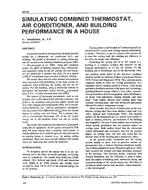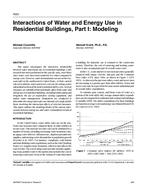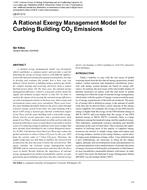This work presents an experimental validation of both a simulation-based design tool and the ASHRAE Handbook– HVAC Application (2011) method for the design of ground heat exchangers. In February 2005, the Universitat Politecnica de València in Spain installed a six-borehole ground source heat pump system (part of the GeoCool project). From this system, nearly six years of experimentally measured temperature and flow data are available. The simulation that forms the basis for the design tool is validated against the experimental results. The simulation performs quite well, missing the maximum and minimum heat pump entering fluid temperatures by only 0.6°C and 0.3°C (1.1°F and 0.5°F), respectively. Both design methods are applied to determine the required ground heat exchanger size that will allow the system to avoid exceeding the maximum heat pump entering fluid temperature that was reached during operation. The simulation-based design tool underpredicts the required size by 4%. In contrast, the ASHRAE Handbook design method oversizes the ground heat exchanger by more than 100%.
Citation: ASHRAE Transactions – Volume 120, Part 2, Seattle, WA
Product Details
- Published:
- 2014
- Number of Pages:
- 13
- File Size:
- 1 file , 3.6 MB
- Product Code(s):
- D-SE-14-032


